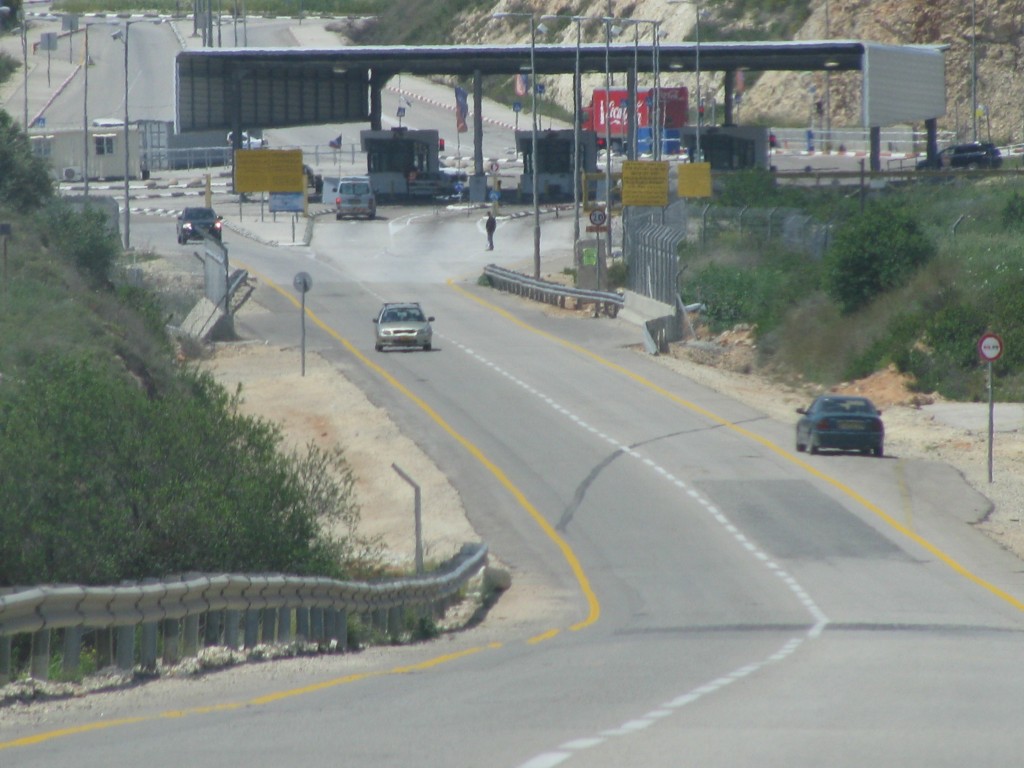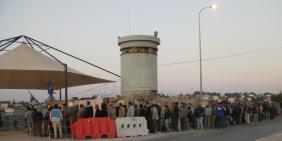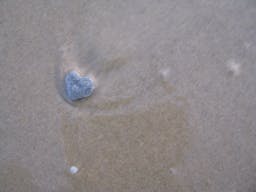Tearing Down the Points of Humiliation
Jan 21, 2015
Story


Fathiya Akafi is a Palestinian citizen of Israel, who at the age of 62, is a wife, mother, grandmother, and an activist.
Not afraid to be different, wearing beige pants, a short blue sweater, and sneakers, - so unlike women her age – her bright red hair stands as a beacon of her uniqueness.
To understand Akafi’s activism today, one must first understand her past.
Her family is from Miska, a small Palestinian village which dated back to the seventh century. The residents of the village were expelled in 1948 by Jewish forces. Her family resettled in another village just a few kilometers away.
“Every time I pass the destroyed village I feel sad. All that is left is a wall of the village mosque and part of the boys’ school,” she explains.
It is this sentiment that pushed her into activism.
She was invited to volunteer for Machsom Watch when one of their volunteers heard her speak passionately at a checkpoint about her grandmother’s wish to die in her (original) house. “Stand strong on your land,” she encouraged the assembled Palestinians. “Don’t let it be stolen, as happened in 1948.”
Machsom Watch (Checkpoint Watch) is an all-woman non-profit organization established in 2001 by Israeli women who oppose the occupation of Palestine, and the existence of checkpoints in Palestine. Approximately 200 women observe the checkpoints daily, and send reports of abuses to government and UN officials.
According to the UNOCHA in Sept, 2011 there were 522 roadblocks and checkpoints, and hundreds of flying (non-permanent) checkpoints throughout Palestine.
They severely disrupt travel for the Palestinians, separate villages, and make short trips unbearably long, and are the sites of many abuses.
Once a week for the past nine years, Akafi visits the checkpoints with an Israeli volunteer. She is the only Arab volunteer.
I recently accompanied her on a drive............
As we stood at Habla agricultural gate, a bus full of children, and two men, one on a donkey cart, passed. “You notice that the soldiers checked the man but not his cart?” she pointed out. “Just last week they would not let clothing for a new born baby pass. They claimed it is not permitted,” she said.
Leaving the checkpoint, we pass ancient olive groves which grace the dry landscape. Every year, the olive harvest results in violent attacks on Palestinian farmers by Israeli settlers.
At Huwwara, once a busy checkpoint, we were approached by two soldiers, our presence there questioned. The checkpoint is now closed, but the illegal, notorious settlements of Itamar and Bracha still sit on hilltops above it, protected by soldiers in the watch tower.
Akafi recalls the day an Israeli soldier claimed that a child had thrown a rock at his jeep, and closed some shops in the village of Huwwara. He took the IDs of all of the people around, and ordered them to stand in the pouring rain. “By the time we arrived, the people were soaked. There were no children around,” she contradicted him.
“We took pictures, and he refused to return the IDs unless we deleted the pictures. I told him we will not delete them, but will send them to his superiors. After a few words between us, he put the IDs on a ledge, and sped off,” she said in frustration.
Akafi takes note of a flying checkpoint. She receives a phone call from Bethlehem, a complaint that a woman is permitted to pass through the checkpoint, but her young son is not, even though he is on her ID.
“This is difficult work, and I often go home feeling very disturbed,” Akafi says angrily. “Sometimes I see 200 – 300 people standing in line, pregnant women, people being thrown into a hut for something small; and men being told to open their jackets from a distance to show they are not carrying weapons. It makes me burn up inside,” she says.
“There is no justice in the world. When people are tortured, students are late for class, and women give birth at checkpoints, where is the justice?” she questions.
“I am not optimistic about the future. This is a right wing government, and getting more right wing,” Akafi complains.
“Everything we do, even if it’s small, has an effect! We have succeeded in getting seats and coverings for those who are being held, instead of leaving them sitting on the ground, in the sun or rain,” she explained. “We try to make things easier for the Palestinian people,” she continued.
“In the summers, we bring children from Palestine to Israel for the day,” she says. “Some of them have never seen the sea, but it’s their mothers who eagerly throw themselves in the water.” “We also show them where some of the destroyed Palestinian villages once stood, she smiles.
We arrive to ‘Azzun ‘Atma, a village encircled by the Apartheid Wall. A line of Palestinian workers forms, single file, at the edge of the street. Cars from a nearby settlement speed past, dangerously close. “In the mornings, sometimes we stand here for two hours waiting to get through,” a worker told us with disgust.
Of four soldiers only one was checking IDs. Akafi threatened to call the humanitarian office. “They ordered that the workers should stand in the street,” a soldier retorted.
“Some soldiers say letting the Palestinians through checkpoints is like herding sheep,” Akafi fumes. “When I ask if they would like their parents to be treated this way, it’s as if I shake something in them,” she continued.
Akafi believes that the voices of women are louder than those of men. However, she feels frustrated that “women in my community are not politically aware. It is a challenge to get them to participate in activities like this.”
Akafi realizes the long term effect of the checkpoints on the men, women and children of Palestine – she wants them torn down. “I want to do something to help, instead of sitting doing nothing,” she says defiantly. I am going to work until the end!”
***UNOCHA - UN Office for the Coordination of Humanitarian Affairs
www,machsomwatch.org
This article is part of a writing assignment for Voices of Our Future a program of World Pulse that provides rigorous new media and citizen journalism training for grassroots women leaders. World Pulse lifts and unites the voices of women from some of the most unheard regions of the world.




